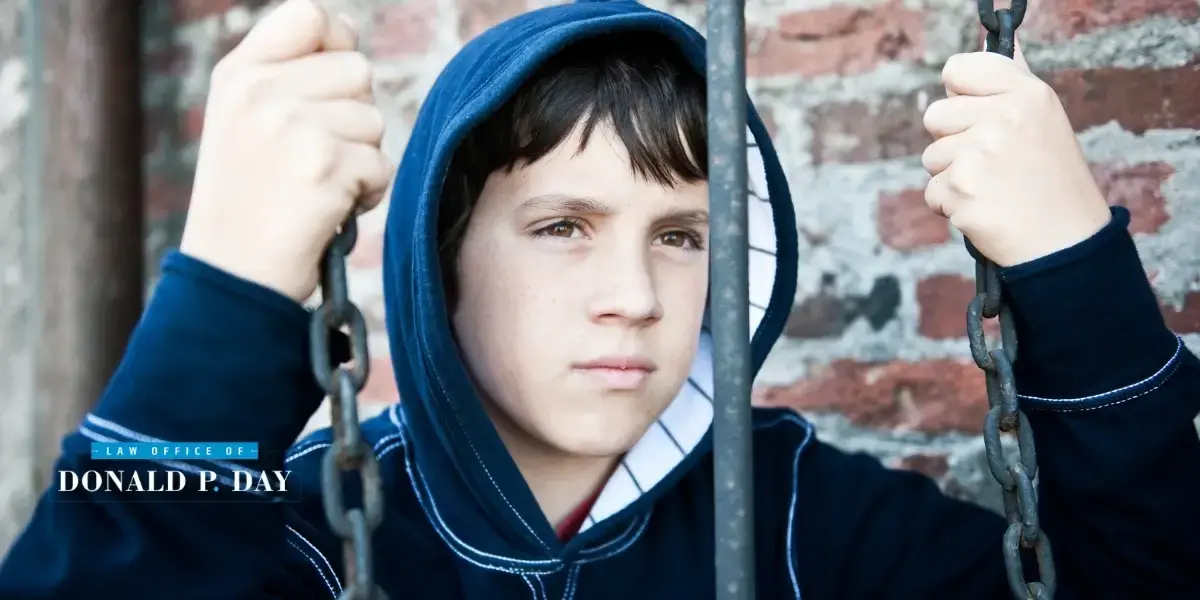Bonita Springs Juvenile Defense Lawyer
Bonita Springs Juvenile Defense Attorney
Whenever a minor, which is an individual under the age of 18, faces criminal charges, the stakes for their future are high. A permanent mark on a juvenile’s criminal record can make it more difficult to secure the type of education and future employment opportunities they desire. If you have been charged, a Bonita Springs juvenile defense lawyer can provide the advocacy and experience you need to safeguard your future and prioritize rehabilitation over incarceration.
At the Law Office of Donald P. Day, we understand how overwhelming it can be for both the child facing criminal allegations and their family. It’s why our team sets out to provide compassionate yet aggressive legal representation to meet the unique needs of each young client we take on. We want to assure guardians that we can work tirelessly to protect their rights and ensure their fair treatment from start to finish.

What Are the Unique Conditions of a Juvenile Defense Case?
It’s true that juvenile defense cases are distinct from adult criminal cases in many different ways. Depending on the nature of the crime, the court’s goals are to find opportunities where the minor can learn from their mistakes and avoid carrying any bad habits into their adulthood.
Some unique conditions of juvenile cases include:
A Strong Emphasis on Rehabilitation Over Punishment
When it can, the juvenile justice system will try to prioritize rehabilitation over punitive measures. This means the courts will try to consider alternative sentencing options, which can give the juvenile a lesson to learn from while not damaging their prospect of having a successful future. This could mean, rather than jail, the minor will be required to be on probation, engage in community service, or enter some form of diversion program to develop their life skills.
Limited Public Access to Records
Juvenile cases are generally more private than adult cases. The court system intentionally limits the public’s access to these types of court proceedings and the records generated from them. It helps protect the minor’s reputation as they try to move forward from the allegations or final verdict. A defense lawyer can also work to get a juvenile’s criminal record sealed or expunged after a certain amount of time has passed, which can further limit public access to this information.
Different Legal Standards and Procedures
There are different procedures and terminology used in juvenile court, which differ slightly from adult courts. For example, a minor is not “convicted” of criminal activity; rather, they are considered to be an “adjudicated delinquent.” In addition, the rules of evidence, sentencing guidelines, and court proceedings are all designed to be less adversarial and more focused on finding the most beneficial way to rehabilitate the minor in the long term.
Parental Involvement
Parents or legal guardians have a stronger role in these types of cases. They are often required to attend their child’s court hearings, meet with probation officers to receive the same information and participate in any counseling or rehabilitative, educational programs alongside the minor. The Florida court recognizes that family support, when available, is essential for a minor’s rehabilitative transition. This is why it’s mandated as part of the resolution process.
Impact of Developmental Factors
Juvenile cases often consider how old a minor is, where they are at in their developmental stage, and the specific circumstances that lead to the alleged offense. Minors are more likely to engage in impulsive behavior and are less capable of understanding the long-term consequences of their actions. A defense lawyer may try to use these developmental factors as an aspect of their defense strategy. This can allow them to argue for leniency or secure alternative sentencing options.
FAQs
What Age Is Considered a Juvenile in Florida?
Anyone under the age of 18 is considered a juvenile in Florida. The juvenile justice system exists to handle offenses committed by individuals who fall into this age category. The whole system was designed to recognize the different approaches these cases require when compared to adults. However, in some extreme cases, minors as young as 14 might be charged as adults if the allegations are especially heinous, like murder.
What Is the Role of the Juvenile Defense Attorney?
Juvenile defense attorneys have a critical role in protecting the rights of minors who face legal charges. Their job is to advocate on behalf of the child and make sure they are treated fairly throughout the entire process. A juvenile defense lawyer can investigate the case’s facts, develop a defense strategy, and execute their tactics to achieve the most favorable outcome possible. They can also guide the child’s family throughout the process.
What Is the Juvenile Justice System Responsible for Dealing With?
The juvenile justice system in Bonita Springs, Florida is responsible for handling any offenses that were committed by someone under the age of 18. There is a greater focus on rehabilitation over punishment in these cases. The system is not limited to what type of crime they take on. Overall, the juvenile courts will oversee the entire legal process while certain stakeholders, like probation officers and counselors, work to support and guide the child through this process.
Contact the Law Office of Donald P. Day Today
When your child’s future is at risk, having the right legal representation can make all the difference in the outcome of their case. Connect with us today to learn more about how we can support you and your child through this emotionally taxing time. We look forward to meeting you and your juvenile to find a defense that works.


